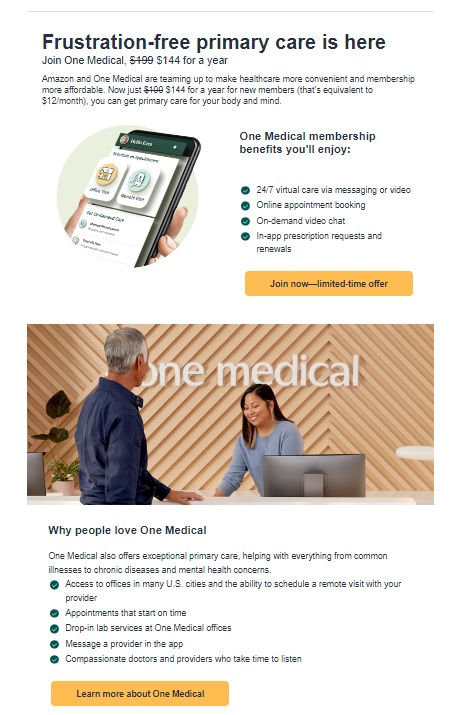 Teladoc had a passable Q1, given the sudden departure of their CEO, a lackluster 2023, and a downbeat (realistic?) 2024 forecast. The highlights were versus Q1 prior year:
Teladoc had a passable Q1, given the sudden departure of their CEO, a lackluster 2023, and a downbeat (realistic?) 2024 forecast. The highlights were versus Q1 prior year:
- Revenue increased 3% to $646.1 million. This exceeded their 2024 projection of $630 to $645 million but the percentage increase is below the 5.2% Teladoc is forecasting for the full year. Their US revenue grew 1% to $547.6 million while international revenue grew 13% to $98.5 million.
- But net loss also increased far more on a percentage basis–18% to $81.9 million, or $0.49 per share. Some of the loss was due to stock-based compensation expense, severance expenses, and amortization of acquired intangibles. Due to these, the increased revenue did not offset or narrow losses.
- Adjusted EBIDTA increased 20% to $63.1 million, which is positive.
Looking at their main market segments, their Integrated Care segment revenue grew 8% to $377.1 million, Once again, BetterHelp, their behavioral telehealth unit and one-time hope for growth, continued to disappoint with a 4% decrease in revenue to $269.0 million.
The forecast for Q2 is:
- Revenue $635 – $660 million
- Net loss per share ($0.45) – ($0.35), slightly lower than Q1
- Adjusted EBITDA $70 – $80 million
Integrated Care’s forecast is an increase of 2 to 5% in revenue, while BetterHelp’s remains weak with a decrease of 4 to 8% in revenue.
So far, cutting costs, higher margins, cutting jobs in data science and engineering, third-party (supplier?) costs, and getting on that ‘path to profitability’ has had limited results, at least to Mr. Market which continues to drop the stock–40% to date and deteriorating. On the earnings call, interim CEO and CFO Mala Murthy, in referring to this, said “We are not waiting. We have a plan to deliver, we have investments to execute, and that is absolutely our focus.” Will Mr. Market believe this in a shrinking market? The search for a permanent CEO is underway, and the replacement is expected to be named later this year. Teladoc release, Mobihealthnews, FierceHealthcare
The broader meaning? This Editor explored what happened at Teladoc and the aftermath after some of the dust settled [TTA 9 April]. The Teladoc foundational model as a stand-alone, mostly urgent care service is not growing but shrinking. It doesn’t coordinate care nor does it integrate well into providers. While the pandemic gave that model a lift, it also boosted integrated services as modules into patient portals, EHRs, population health, and other provider-based platforms. Among higher care need Medicare beneficiaries, usage was there but minimal detailed in two recent studies. Even asynchronous and telephonic telehealth gained since they were reimbursed or low cost. Before, during, and after the pandemic, there were too many telehealth companies for the limited demand. Add in the continuing proliferation of telementalhealth providers, still popping up like tulips in spring–another reason why BetterHelp, one of the earlier entrants, isn’t getting traction. FierceHealthcare adds more points such as over-supply cratering price (and the revenue model) and hybridization: white-labeling with providers, virtual specialty clinics such as those under Included Health’s, and partnerships with health plans and employers.
CVS Health’s Q1 also wasn’t swell for reasons that are impacting their full year. High medical costs affected their Aetna plans, with high utilization in Medicare Advantage, inpatient admissions, and outpatient services were all high in Q1–$900 million higher than CVS expected. Lower MA STAR ratings will affect their forward Federal reimbursements, with one of their largest MA plans falling from 4.5 to 3.5 rating in 2024. According to CEO Karen Lynch, most of this utilization was from a patient usage reversion to pre-pandemic patterns. Their Q1 revenue of $88.4 billion was up 4% versus prior year with net income falling by almost half to $1.1 billion, both significantly below analysts’ expectations. CVS adjusted their full year downward, which led to their stock falling another 19%. Change Healthcare’s data breach is also affecting their forecasts with delayed claims, leading CVS to set a reserve of $500 million. HealthcareDive















Most Recent Comments